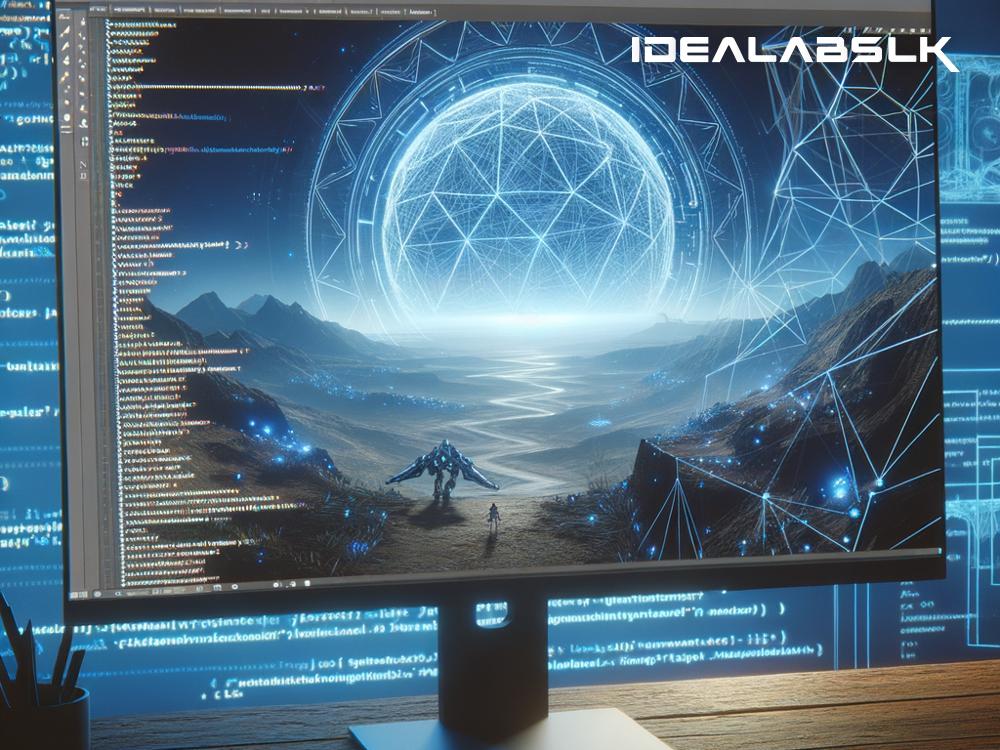AI in Game Design: How It Will Shape the Aesthetics of Future Games in 2024
In recent years, we've seen Artificial Intelligence (AI) leap from the realm of science fiction into our daily lives. It's everywhere – from the smart assistants on our phones to the way we shop online. But it's in the world of video gaming where AI's impact might be the most thrilling, especially when it comes to game design and aesthetics. As we edge closer to 2024, let's dive into how AI is set to revolutionize the look, feel, and immersion of future games.
The Magic of AI in Game Worlds
Imagine stepping into a game world that feels alive, where the environment reacts to your actions in a lifelike manner, and characters seem to have minds of their own. This is where AI steps in, transforming game design and aesthetics in ways we've only dreamed of. By 2024, these dreams could become our new reality, making our gaming experiences more immersive than ever.
Dynamic Environments: A World That Changes With You
One of the most exciting prospects is AI-driven dynamic environments. Currently, game worlds are mostly static. Trees, buildings, and the weather don't change unless programmed to do so at specific moments. But with AI, game environments could evolve naturally. Trees might grow or lose leaves, buildings age, and weather patterns shift realistically over time or in response to player actions. This not only enhances the aesthetic appeal but makes the game world feel like a living, breathing entity.
Unpredictably Smart NPCs
Non-Playable Characters (NPCs) – the background people or creatures in games – often follow simple, predictable routines. However, AI is set to change that by giving these characters their own "thoughts" and "desires". Imagine a shopkeeper who remembers you, greets you differently based on your past interactions, or even decides to close shop and take a holiday. Suddenly, every character you meet could have a depth that adds a rich layer to the game's narrative and visual appeal.
Procedural Generation: Infinite Beauty
Procedural generation is a technique where game content is created through algorithms, allowing for infinite variations. AI takes this to the next level, generating not just landscapes, but entire cities, dungeons, or alien planets that are unique every time you play. This means more beautiful, diverse game worlds in 2024, with aesthetics limited only by the developers' (and AI's) imagination.
Adaptive Difficulty and Aesthetics
AI can also change the way games adjust to our skills, ensuring we're always challenged but not frustrated. This adaptive difficulty extends to aesthetics as well. Imagine a horror game that becomes visually darker and more claustrophobic as your fear level rises, or an adventure game where the beauty of the world intensifies as you progress. AI could dynamically adjust the game's visuals and difficulty to keep you engaged and immersed.
The Future of Storytelling
Narrative is a crucial aspect of game aesthetics, and AI is poised to revolutionize this area too. With AI, game stories could branch out in countless directions based on your decisions, creating a tailored experience that's deeply personal. This fluid storytelling not only makes games more engaging but significantly enhances their visual and emotional impact.
Ethical and Artistic Considerations
As AI reshapes game aesthetics, it also brings certain challenges. There's the ethical consideration of creating NPCs that seem too real, potentially blurring the lines between game and reality. Additionally, while AI can generate breathtaking visuals, there's an ongoing debate about the role of human artists in this AI-driven future. Balancing AI's capabilities with human creativity will be key to ensuring games remain artistic expressions.
Conclusion
The integration of AI into game design and aesthetics represents an exciting frontier for the industry. As we look towards 2024, we're on the cusp of experiencing game worlds that are more dynamic, reactive, and immersive than ever before. From changing landscapes and smarter NPCs to infinitely beautiful game worlds and adaptive storytelling, AI is set to redefine our gaming experiences. While challenges remain, the potential for breathtakingly beautiful and deeply engaging games is undeniable. The future of video game aesthetics, powered by AI, promises to be nothing short of revolutionary.

